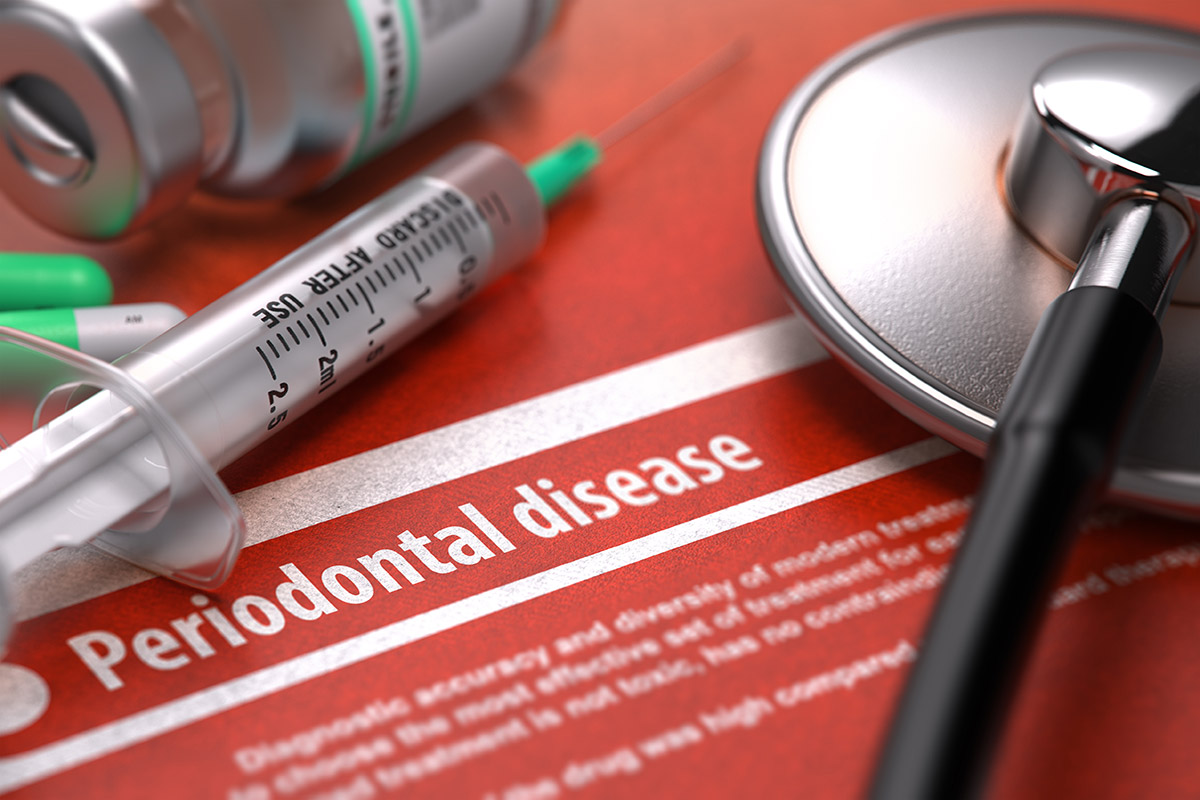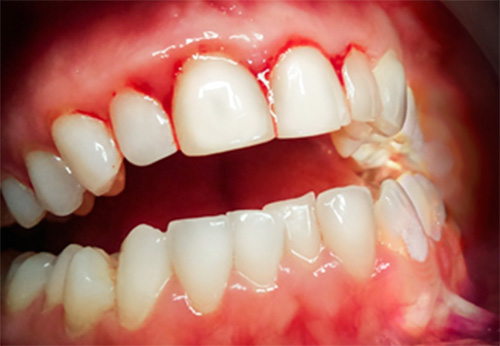
Gingivitis
Gingivitis is the inflammation of the gingival or gums exposed to various pathogens that accumulates around the teeth. The initial signs of gingivitis may occur in many forms, such as bleeding when brushing teeth and bad breath, etc. These symptoms will warn you that your gums are not normal. You should have it treated immediately to prevent further progression.
Symptoms of Gingivitis
The appearance of inflamed gums shows that are swollen and red and oftentimes the gums are bleeding. If symptoms of gingivitis is ignored and teeth are not properly cleaned accumulates limestone overtime. This hard formation covering the edge of the gum would be difficult to remove with brushing. Finally, the limestone will accumulate germs that will spread throughout the other teeth.

Bleeding between teeth while brushing or when using dental floss indicates the occurrence of gingivitis, if it is aggravated the gums will be red, dark pink, or dark red. There is swelling and painful when touched. It can also cause bad breath because of the food that is left un-cleaned in the swollen area. If this is not treated immediately, the gums will recede from the teeth and possible pus formation.
Some cases are so severe that their teeth start to rock because there is dissolution of the bone that supports the teeth, this will lead to Periodontitis.
Causes of Gingivitis
Gingivitis is caused by the lack of proper oral hygiene, not using floss and has not visited the dentist for scaling for a long time. This causes the accumulation of plaque and limestone where germs thrive. At times, prolonged use of certain medicine may also result in gingivitis. In addition, people with diabetes and people who smokes have are at a higher risk of gingivitis than others.
How Serious is Gingivitis?
Sometimes people take swollen gums or gingivitis lightly. However, the danger is when the inflamed gums are not treated for a longtime. The condition of the tooth and gums will become more severe, causing bone loss around the teeth. The gum recedes and teeth appear longer and possibly loosing the affected teeth.
What to do if you think you have gingivitis?
If you suspect unusual symptoms in your mouth and think that they are signs of gingivitis, you should go to the dentist right away to have it checked. If acted on immediately gingivitis can be prevented. But most importantly, whether you have gingivitis or not, is to always brush your teeth 2 times a day, and use dental floss regularly, and maintain a regular dental check-up.
Skytrain Dental Group
